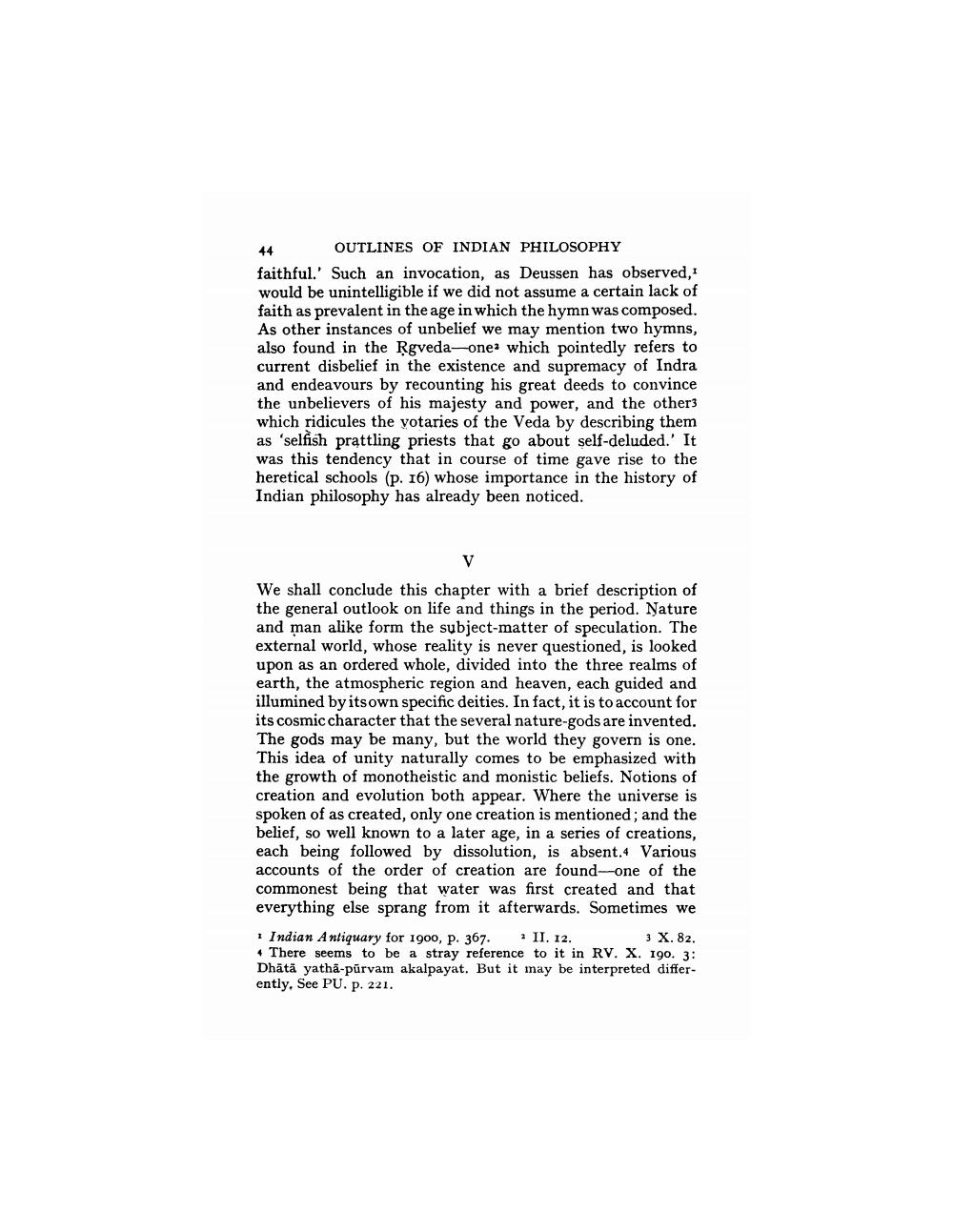________________
44
OUTLINES OF INDIAN PHILOSOPHY
faithful.' Such an invocation, as Deussen has observed,1 would be unintelligible if we did not assume a certain lack of faith as prevalent in the age in which the hymn was composed. As other instances of unbelief we may mention two hymns, also found in the Ṛgveda-one which pointedly refers to current disbelief in the existence and supremacy of Indra and endeavours by recounting his great deeds to convince the unbelievers of his majesty and power, and the other3 which ridicules the votaries of the Veda by describing them as 'selfish prattling priests that go about self-deluded.' It was this tendency that in course of time gave rise to the heretical schools (p. 16) whose importance in the history of Indian philosophy has already been noticed.
V
We shall conclude this chapter with a brief description of the general outlook on life and things in the period. Nature and man alike form the subject-matter of speculation. The external world, whose reality is never questioned, is looked upon as an ordered whole, divided into the three realms of earth, the atmospheric region and heaven, each guided and illumined by its own specific deities. In fact, it is to account for its cosmic character that the several nature-gods are invented. The gods may be many, but the world they govern is one. This idea of unity naturally comes to be emphasized with the growth of monotheistic and monistic beliefs. Notions of creation and evolution both appear. Where the universe is spoken of as created, only one creation is mentioned; and the belief, so well known to a later age, in a series of creations, each being followed by dissolution, is absent.4 Various accounts of the order of creation are found-one of the commonest being that water was first created and that everything else sprang from it afterwards. Sometimes we
1 Indian Antiquary for 1900, p. 367.
2 II. 12.
3 X. 82.
+ There seems to be a stray reference to it in RV. X. 190. 3: Dhātā yatha-pūrvam akalpayat. But it may be interpreted differently, See PU. p. 221.




